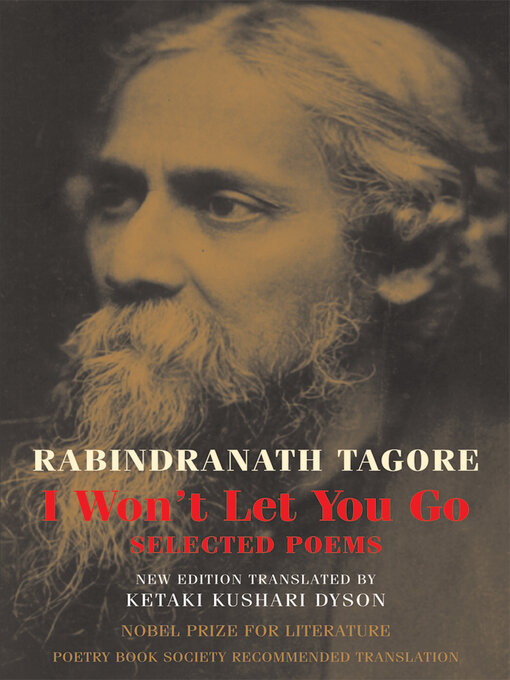Rabindranath Tagore (1861-1941) is India's greatest modern poet and the most brilliant creative genius produced by the Indian Renaissance. As well as poetry, he wrote songs, stories and novels, plays, essays, memoirs and travelogues. He was both a restless innovator and a superb craftsman, and the Bengali language attained great beauty and power in his hands. He created his own genre of dance drama and is one of the most important visual artists of modern India. He won the Nobel Prize in Literature in 1913. Tagore's poetry has an impressive wholeness: a magnificent loving warmth, compassionate humanity, a delicate sensuousness, an intense sense of kinship with nature and a burning awareness of man's place in the universe. He moves with effortless ease from the literal to the symbolic, from the part of the whole, from a tiny detail to the vast cosmos. He is religious in the deepest sense, wavering between a faith that sustains the spirit in times of crisis — or fills it with energy and joy in times of happiness — and a profound questioning that can find no enduring answers. To him the earth is a vulnerable mother who clings to all her offspring, saying 'I won't let you go' to the tiniest blade of grass that springs from her womb, but who is powerless to prevent the decay and death of her children.
- New eBook additions
- Available now
- Most popular
- Childhood Classic eBooks
- Dyslexia
- Islamophobia Awareness Month
- Unmissable Picture Books
- Try something different
- Crime Doesn't Pay
- Novella & Short Story Classics
- Read-Along
- Out-of-this-world Sci-Fi
- Get Creative at Home
- See all
- New audiobook additions
- Islamophobia Awareness Month
- Books on Film
- Try something different
- Available now
- Read by a Celeb
- Most popular
- New kids additions
- New teen additions
- Interesting Lives: Memoirs & Biographies
- Crime Doesn't Pay
- Popular Audiobooks
- Series Starters
- See all

